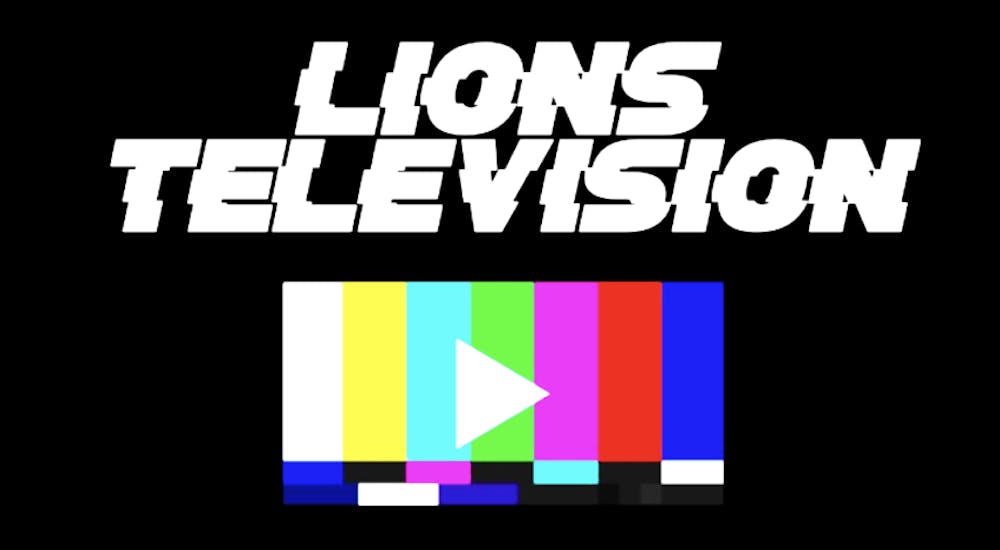By Zachary Rice
Signal Contributor
For an aspiring entertainer or someone with a general interest in entertainment, Lions Television (LTV) is a great place to test the waters. Full of robust programming, this student-run organization is focused on making quality videos and building a rich community.
But the past several semesters forced LTV to work around the obstacle of the pandemic, and though Covid-19 rates have fallen, the organization remains prepared should it be forced to go virtual once again.
“LTV is designed to be done anywhere,” said Robert Andersen, a sophomore interactive multimedia major and LTV lifestyles producer. “The power of video is something that can be accessed throughout the world.”
Though LTV hasn’t discussed any plans of going virtual again in the near future, its success during the online semesters in the first waves of the pandemic is a mark of LTV’s preparedness for the possibility of more virtual work.
“We have an idea of what to do because we have done it before, but we don’t really have a full drawn out plan unfortunately,” said Harrison Tabor, a senior history major and the current director of programming for LTV. He has been involved with the station for four years.
“We did it before, we did it during the first wave of the pandemic where we made videos from home,” Andersen said. Though he wasn’t a part of the organization during the pandemic, he is keyed into the programming.
During the pandemic, LTV started several programs, such as tips on being productive during quarantine.
“Life at TCNJ doesn’t specifically mean living here. The school still exists even if we can't be here,” Andersen said. It is clear that while members of LTV were not able to be here in person during the height of the pandemic, they did their best to put out quality content through their work.
Though LTV took the pandemic in stride, it didn’t come without its repercussions. A big issue early on was generating content ideas.
“We really just weren’t prepared with ideas to go virtual, which not to say that we really are now, but if the threat was near, we would be able to brainstorm ideas to keep producing content,” said Jodi Maloney, senior radio film and television major and LTV tech director.
Tabor, who was involved with LTV during the pandemic, had this to say about some of their processes.
“We had several cooking episodes that went up online that involved several people at their own house,” Tabor said. “It helped that our cooking producer knew what she wanted and was able to tell people to get a camera, record yourself cooking this, give us commentary on that. We were able to mix it into a video and that was that.”
Maloney gave credit to the producers when asked about what gave them the most success during the quarantine.
“It comes down to the producers because those are the people who have the ideas,” she said.
So even though it might have been a rocky start, LTV’s faith in its people got them through that quarantine and can get them through again, but this time they will have more seasoned people to help them through another possible online stint.
Having had experience with online shows, a return to online should go smoother than the last time. One thing that they figured out over the quarantine was that Zoom was a very good tool for shows.
“Even game show, which is our biggest in-studio shoot, they were able to do stuff through Zoom,” Maloney said.
Though they may not have the multi-camera setups and studios that they are used to, Zoom was a nice replacement in order to get different camera views for a professional look to their show.
“I think Zoom is probably more or less what you made of it and I guess the idea of Zoom was not the worst thing,” Tabor said.
While Zoom was a great technical tool for LTV while they were online, they found even more advantages during this time.
“I think honestly what helped us the most is that a lot of people in the club still had drive to get stuff done, no one gave up,” said Chris Hunt, a junior communications major and the station manager at LTV. “It was more like ‘Ok, we shifted our plans.’”







